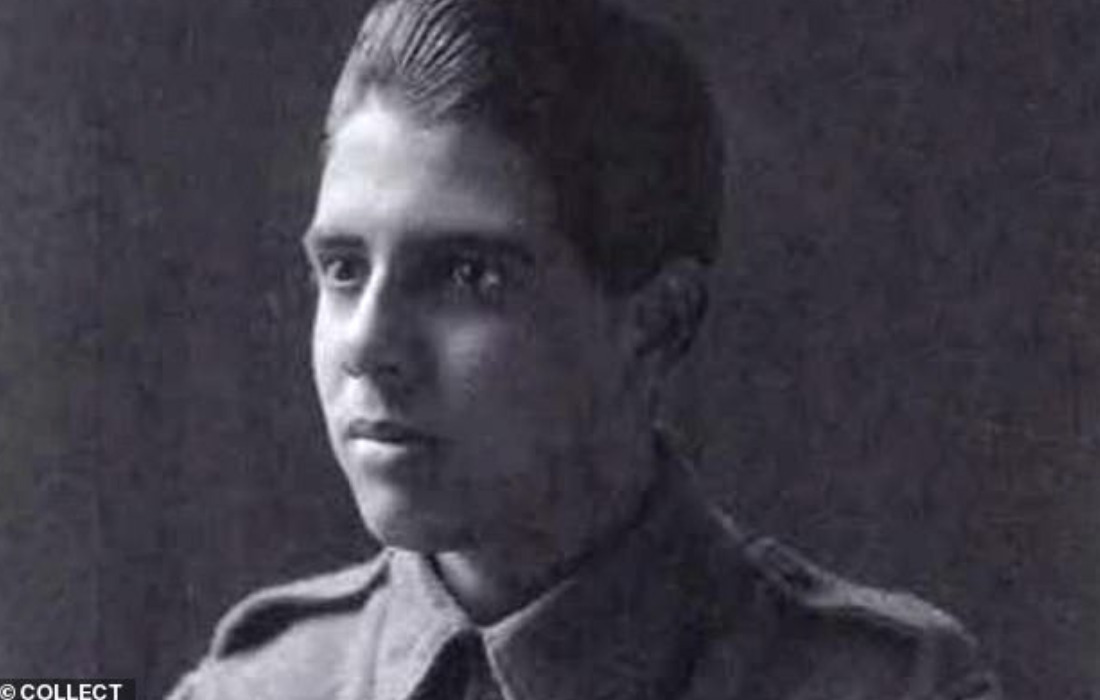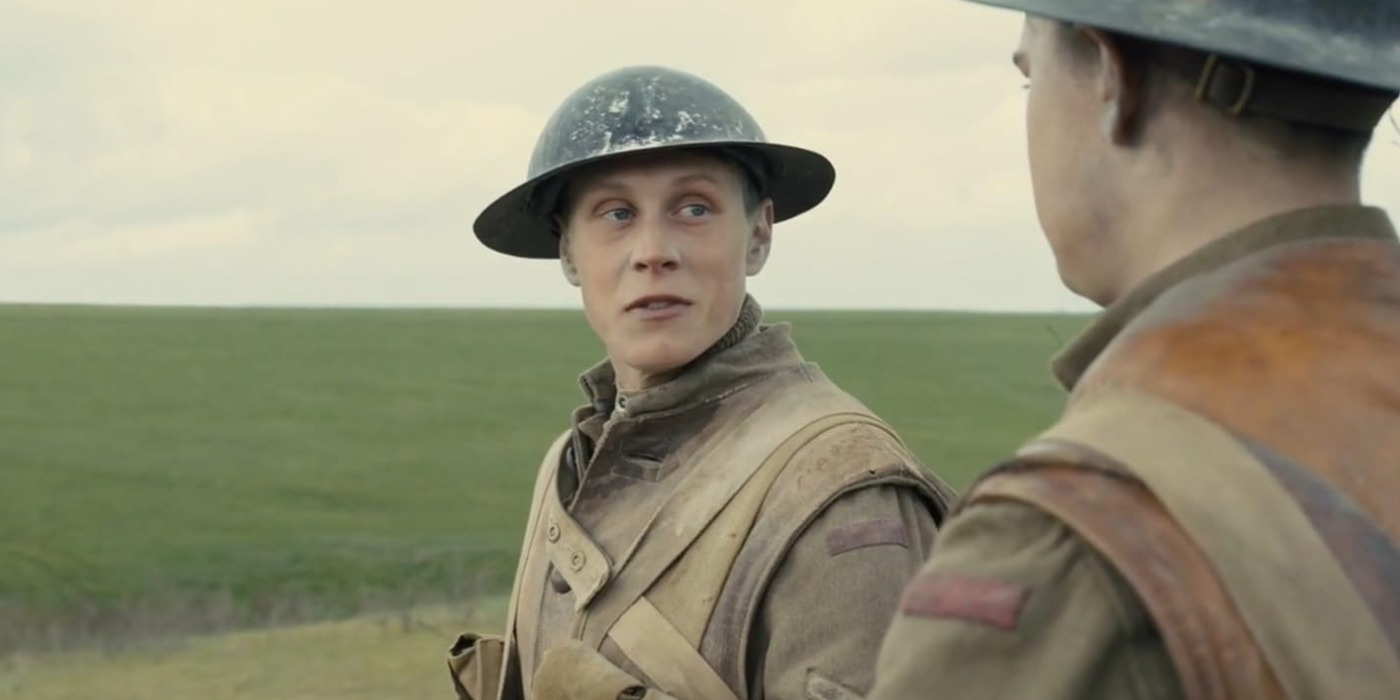Sam Mendes’ war drama film, ‘1917,’ unfolds on France’s Western Front, following a pair of soldiers in the British trenches and the deadly land in between. In April 1917, after the German forces inexplicably retreat, General Erinmore discovers that the enemies are setting up a trap for their 2nd Devons Battalion, who are prepped for an attack. Consequently, two Lance Corporals, Tom Blake & Will Schofield, receive an assignment to deliver a message to Colonel Mackenzie and prevent 1600 British soldiers from walking into the mouths of confirmed fatality. However, a hellish path lies ahead of Blake and Schofield, who must brave dangerous lands to reach the Devons as a ticking time bomb looms over their heads.
The film’s exploration of the First World War through a realistic lens — further improved by the narrative’s manufactured one-shot appearance— showcases the war’s chilling stasis. As such, in following Blake and Schofield’s daunting venture, viewers gain a unique perspective on the horrors of the Great War. However, while the story’s setting maintains historical ties, is the same true for its leading protagonist, Will Schofield?
Alfred Hubert Mendes: The Loose Inspiration Behind Will Schofield
As a film centered around the First World War, ‘1917‘ retains natural historical connections to the real world. Still, the exact narrative that unravels on-screen is a dramatization of a generationally passed-down account. Director Sam Mendes, who co-wrote the screenplay alongside Krysty Wilson-Cairns, based ‘1917’ on the war stories he heard from his grandfather, Alfred Hubert Mendes. Born to a middle-class Portuguese family, Alfred was a soldier in World War I, where he fought in the Flanders for the British army during his teenage years. Eventually, after the war’s end, the man went on to become a novelist and a short story writer, remembered for works such as ‘Pitch Lake’ and ‘Black Fauns.’

Although Alfred remained silent about his experience in the war at first, he eventually began opening up about the same, sharing his story with his family. As such, his grandson, filmmaker Sam Mendes, came to learn about Alfred’s account of his time in the British Army, where he often served as a messenger. “[And] There was one particular story he [Alfred] told us of being tasked to carry a single message through no man’s land in dusk in the winter of 1916,” Mendes recalled in an interview with NPR. “He was a small man, and they used to send him with messages because he ran five and a half feet, and the mist used to hang at about six feet in no man’s land, so he wasn’t visible above the mist. And that stayed with me. And that was the story I found I wanted to tell.”
Consequently, Alfred’s story remains the direct real-life inspiration behind the venture that Will Schofield finds himself undertaking. While the character inherits certain fictitious details and personalities due to the film’s heavy utilization of creative liberty, Schofield holds onto a connection with Alfred that grounds the on-screen soldier’s narrative in reality. Furthermore, the raw depiction of the character’s struggle and grief in the midst of a time-sensitive mission authentically showcases the magnitude and consistency of death, tragedy, and inescapable trauma that has been unique to the First World War.

Mendes discussed the same aspect of the film in a conversation with Time, expressing his motivations behind presenting Blake and Schofield’s story in a specific light.” In war, you see human beings pushed to their extremes and forced to confront what it means to be alive and what it means to sacrifice yourself for other people.” As such, the director wanted his protagonists’ stories to reflect the same and bring a realistic account of war’s harrowing toll on the soldiers. Additionally, while Mendes employed his grandfather as the inspiration behind his central characters’ heroes’ journeys, he chose to christen both Blake and Schofield under fictional names.
The same remained a conscious choice made with the understanding of the lost nature behind numerous WWI soldiers, who fought and lost their lives for their country without gaining widespread recognition. “For us, it’s a lost generation,” said Mendes. “And if you go through all the small villages and towns of England, you’ll find many more memorials to the lost [soldiers] of World War I than World War II. It throws a bigger cultural shadow.” Thus, Schofield connection and detachment from Alfred remain intrinsic to his character, allowing him to forge roots in reality without remaining confined by it.
Ultimately, even though Alfred presented the base inspiration for Schofield in a way, the latter doesn’t bring a biographical account of the former’s life. Instead, Alfred’s memory and his tales handed down to Mendes helped shape the filmmaker’s perspective on the First World War, providing context for his film, ‘1917.’ As a result, Schofield retains a partial origin in Mendes’ grandfather, Alfred, with ample fictionality born of artistic freedom imbued within the character.
Read More: Where Was 1917 Filmed?


You must be logged in to post a comment.